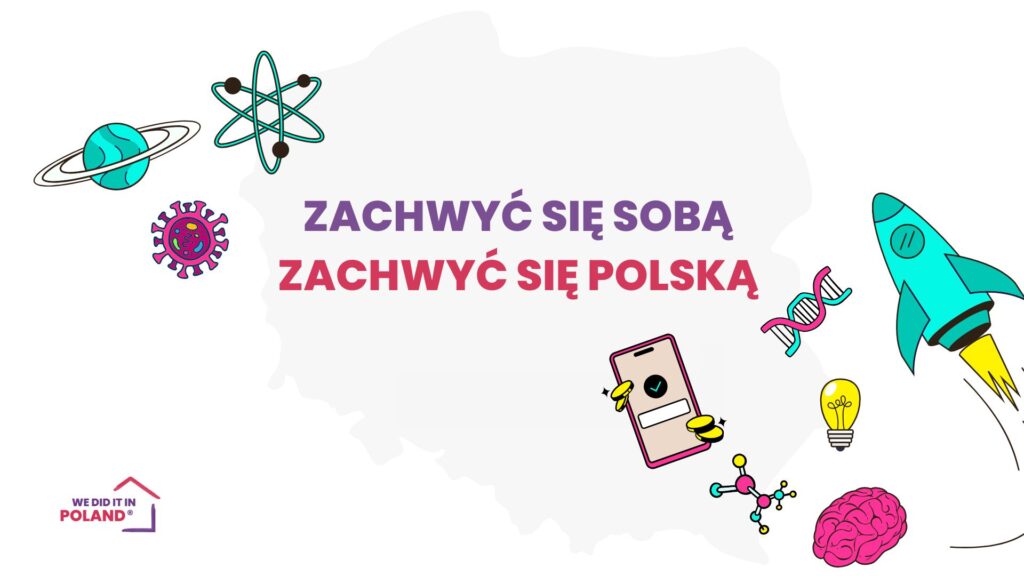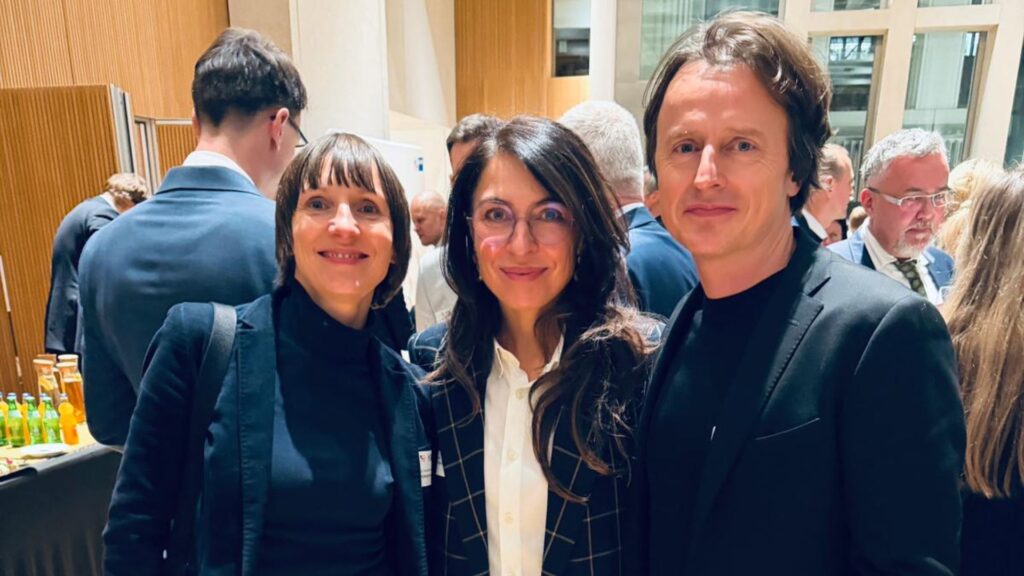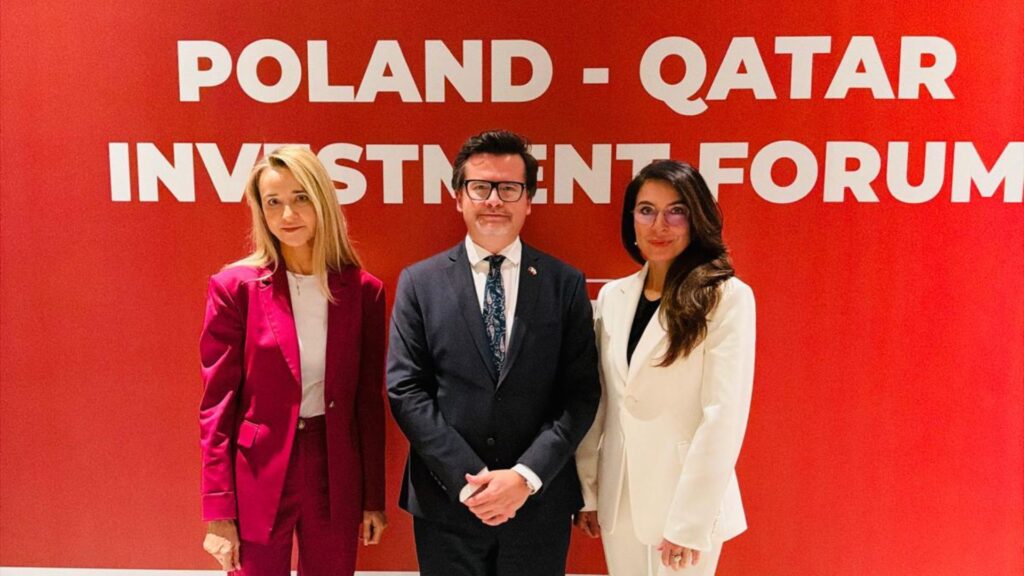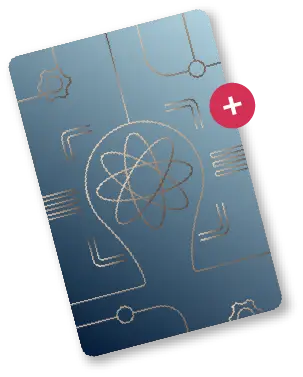How did you know you wanted to become an entrepreneur and a startup?
My mother always laughed that I would not be a good worker – and that I had to work “on my own.” We planted the seed then. Already in high school I was interested in entrepreneurship, participated in economic Olympiads. I knew I wanted to work in marketing, gaming, helping brands communicate with gamers.
I didn’t have a “I’m going to be a startup” plan, but I was active in the gaming community, meeting people, getting involved. And finally I met Maciek Sawicki – my partner, mentor – who invited me to co-found inStreamly.
This path found me a little, but I was the one who helped her find me. I did things that made me glow. And through that, I met people who were also glowing. And it worked.
Was there a moment when you thought, “It won’t work”? What did you do then?
The life of an entrepreneur is strewn with moments when you think, “it won’t work,” and then…. you figure out how it can work after all. You try another time, another way, until finally something surprises you. And I have the feeling that, in the end, our company has succeeded. We exist, we grow, we operate internationally. We have achieved success, especially from a startup perspective, where most projects fail. But despite this success, I still feel there’s more ahead of us.
My motto in life is: you have to do and not be afraid. Whenever I don’t know what to do, whenever I have that moment: “it won’t work”, I just do anything. Because inaction is usually worse than any step – even one in a non-ideal direction.
How is your relationship with failure and success? Do they paralyze you or have you learned to tame them?
I probably have more experience with failures than with successes – in the long run, more things have failed than succeeded for me. Every day something fails. We as a company do too: we don’t get a customer, an investor. But over time you stop thinking about it in terms of “failure-success”. You change your perspective to “experiment and result.”
Instead of giving up, you try a different way. For example: to get our five investors in three rounds, we talked to more than a hundred funds. Sometimes these were long conversations, several calli, answers to dozens of questions. If we had given up after the third or tenth “no,” this company would not exist. That’s why failure is simply a temporary condition for me.
Success, on the other hand, I also treat as something temporary. Because immediately there is another thing to do, to improve, to develop. I get the most satisfaction from the successes of the team. When people are happy, develop, do things, often, without my participation. Awards and accolades? Sure, they are nice, very nice, and give such a feeling that this work is noticed and appreciated. But the next day it’s back to work.
Which of your skills have proven to be the most important in building the company?
First: knowledge of League of Legends and other games that I played far too much. This knowledge proved invaluable in dealing with customers.
Second: I’m such an “agent of chaos” – I get into a topic, look down and look for a way to do something faster, smarter, better.
Third: storytelling. The ability to tell stories, present oneself and synthesize thoughts – verbally and in writing. Much of our marketing was based on my persona and personal branding. As a result, we had real PR, investor and image effects.
And one more thing: ignorance. I don’t know that something is “impossible”. – I simply assume that I will learn. I don’t get attached to tasks, I delegate easily, I don’t have an emotional problem with it. This has proven to be crucial for dynamic development.
If you were to create a “survival manual” for female innovators – what would come first in it?
In the first place: courage is a choice. The only thing that stands between doing and not doing – is the decision. Many startups have never been created because someone was afraid to start, thought too long, didn’t believe they could.
And yet it is possible to be afraid and act in spite of everything. Women in new technologies especially need this courage – we lack role models outside the world of science. Awareness that this is my choice and that I am making it in spite of fear – is key.
What’s one thing you should absolutely ignore when building something groundbreaking?
Absolutely: you should ignore all the advice you want to ignore – including mine. No one has done exactly what you did before and in the way you did. Sure, there are universal patterns, and it’s worth listening to experience. But not all advice has value in your context.
It was also said about our startup that “it won’t work”. And now every 9th month someone in Poland copies us – and gets a round of funding for it. Ignore people who say it won’t work if they don’t have good arguments. And if they have? Address them and move on.
Imagine having no constraints – budget, technology, time – and being able to complete one crazy project. What would it be?
Ojeny, I have plenty of such projects! But I’ll talk about two.
The first: total madness. A game where you move with your whole mind – a combination of brain and computer, full immersion, creating worlds together. Such a top-shelf production.
The second: more mundane, but more important to me. I would like to deal with health topics, especially neurodegeneration. If I could throw myself into something really big, I’d like to find a way to ensure that no one gets Alzheimer’s anymore. I believe we can handle transplants, organs, technology – but the most important thing remains what’s in your head. I lost a loved one to this disease. And I don’t want it to happen again to anyone.







